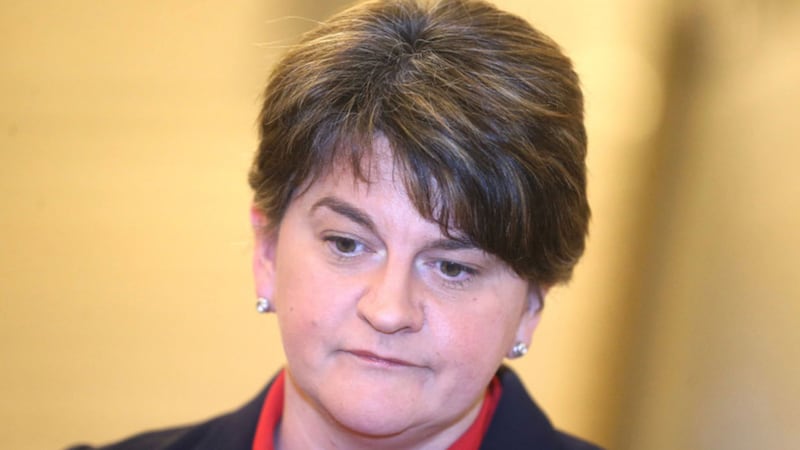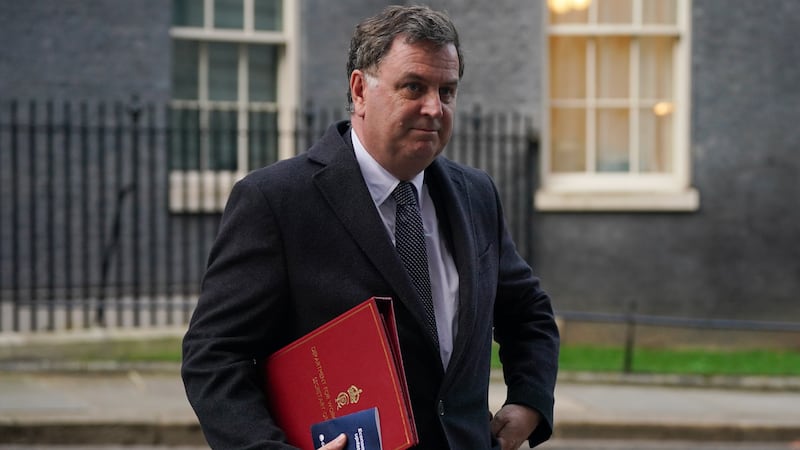Arlene Foster's unopposed appointment as the DUP's third leader in January last year opened a new chapter in Northern Ireland politics. The Fresh Start agreement had been signed-off just a matter of weeks before and relations between Stormont's 'big two' were in one of their healthier phases.
There was an election looming a few months down the line, but it was effectively two polls – one where unionism would choose its leaders, while nationalists elected their corresponding representatives.
For many observers, the new DUP leader's former associations with the Ulster Unionist Party and her membership of the Church of Ireland represented a break with her party's fundamentalist past.
Irish News cartoonist Ian Knox on drawing Arlene Foster
But commentator Chris Donnelly thinks the DUP leader's progressive credentials were exaggerated in some quarters.
"There was an assumption that when the torch was passed to a younger woman who was not a Free Presbyterian that this would perhaps translate into a liberal and conciliatory approach," he says.
"But there is nothing in Arlene Foster's personal or political history that supports that notion and I think that has been borne out over the past year or so."
During her first weeks in office, the new DUP leader indicated that she wouldn't be attending the Easter Rising commemorations though in one of her first interviews in post, Mrs Foster told The Irish News that she would happily attend a GAA match. However, the silence since from the DUP and the GAA suggests this idea never got further than discussion stage.
During the spring election campaign, Mrs Foster was very much to the fore, with her image used on literature and posters right across the north. As a strategy it worked – the DUP held its 38 Stormont seats and with a gap of 10 MLAs between it and Sinn Féin, remained the dominant force in the assembly.
With such a comfortable margin between the DUP and it rivals, it appeared a perfect time for Mrs Foster to demonstrate her commitment to reconciliation. But it appeared the appetite wasn't there. For the late Deputy First Minister Martin McGuinness, Northern Ireland and the Republic's involvement in last June's European Championships in France offered the perfect opportunity for both Stormont figureheads to reach out by together attending games involving both teams.
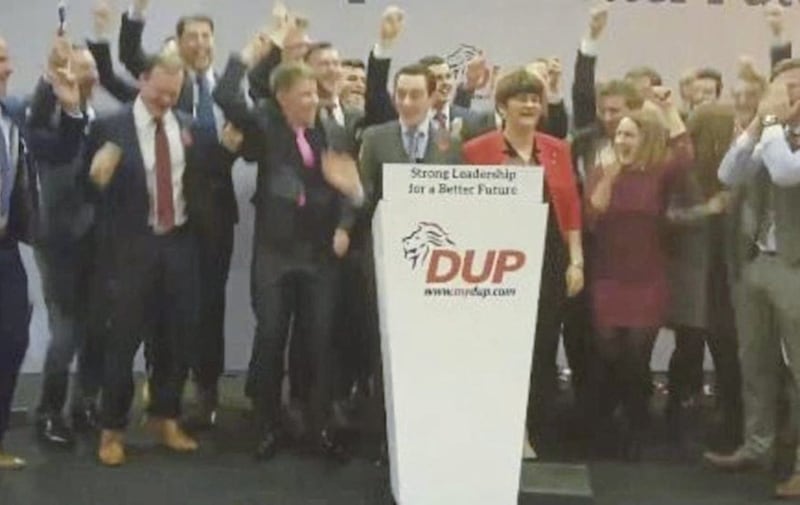
But as Mr McGuinness recalled earlier this year in his final round of interviews before retiring from politics, the DUP vetoed the plan for them to watch Ireland’s two soccer teams and he ended up watching both games alone.
"It’s not like I was asking her to go to a 1916 commemoration," he told The Irish News in January.
Despite the first minister's failure to reciprocate her Sinn Féin counterpart's gesture, relations at Stormont Castle remained healthy, publicly at least, with even a divisive EU referendum campaign and a potentially more divisive vote for Brexit failing to drive a wedge between the two leaders.
They even jointly penned a letter to Theresa May which outlined the north's priorities for the forthcoming negotiations around the UK's withdrawal from the EU. The business-like approach continued after the summer and saw the draft programme for government published and put out for consultation.
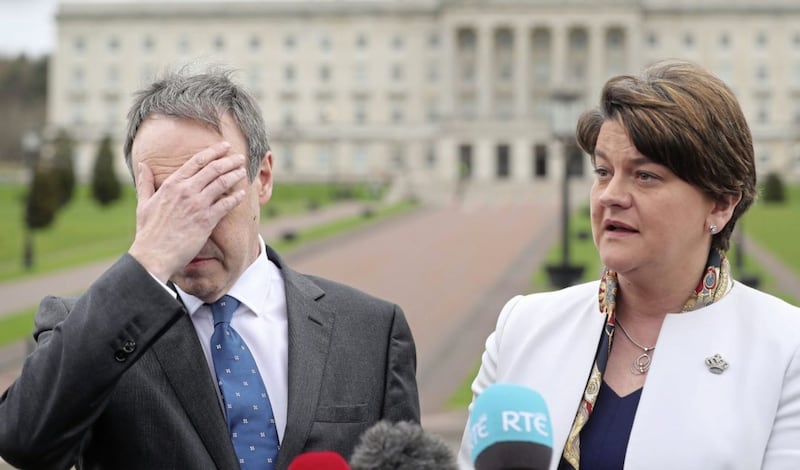
Meanwhile, Stormont's Public Accounts Committee was beavering away with its probe into the botched Renewable Heat Incentive (RHI), which had been the subject of a damning Audit Office report in July. Mrs Foster had been in charge of the Department of Enterprise, Trade and Investment much of the time the generous scheme was in place but had left successor Jonathan Bell to clean up the mess.
However, the RHI issue had yet to gain much traction and in September last year the media focus was another controversy, with Mrs Foster forced to defend £1.7m of funding to UDA-linked Charter NI. Photographed alongside UDA commander Dee Stitt, she insisted she wasn't turning a blind eye to paramiltarism but "trying to encourage people to move away from their past". The then first minister was duly backed by Sinn Féin, which along with the DUP had been a chief architect of the controversial Social Investment Fund.
The RHI controversy finally blew up last December as the broadcast media suddenly began to show greater interest in the smouldering scandal. Initially, Sinn Féin offered the first minister an escape route which would have kept the institutions afloat. However, Jonathan Bell's claims about special adviser interference, coupled with agitation from the opposition benches, led to a hardening of Sinn Féin's stance in the run-up to Christmas.
Republicans' calls for the DUP leader to step down were dismissed and the stand-off prevailed until early January when Sinn Féin dramatically pulled the plug on Stormont. Had Mrs Foster adopted a more contrite approach and acknowledged the need for an inquiry and ministerial reform, perhaps the nuclear option could have been avoided.
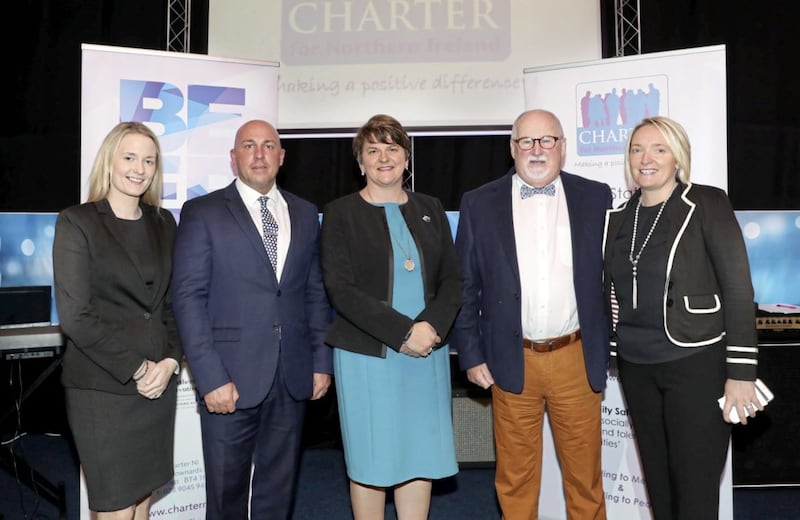
"Not for one moment did Arlene Foster think Sinn Féin would collapse the institutions – I think there was a feeling that Sinn Féin was so embedded in devolution through St Andrews and dominating nationalist vote," says academic Jon Tonge, who co-authored the 2014 book 'Democratic Unionist Party: From Protest to Power'. "It was certainly a rude awaking for her."
The election campaign that followed was very different from the previous year's, with Mrs Foster and her party formulating their own version of 'project fear' that focused on Sinn Féin and Gerry Adams's "radical republican agenda". The DUP leader's now-infamous 'don't feed the crocodile' comment set the tone for the election. She attempted to row back during the campaign – writing in this newspaper, she acknowledged responsibility for a perception that she was 'anti-nationalist'. It was too little too late, however, as the election result showed a huge surge in support for Sinn Féin and the loss of unionism's majority in the assembly.
Months before Arlene Foster had been untouchable but her riling of republicans meant she had overseen unionism's most disastrous ever election. It's argued that had it not been for Sinn Féin calling for her head then the DUP would have moved to unseat its leader.
Arlene's annus horribilis: read more
The Iron Lady of unionism who became a liability
RHI will cast long shadow over Foster's time as enterprise minister
Foster may have made mistakes but she's still supported in Fermanagh
The Arlene Foster that emerged after the polls appeared much less assured than the person who had marked the end of her party conference in November by bouncing up and down alongside party colleagues to chants of 'Arlene's on fire'.
The hubris and aloofness that had characterised her leadership in the wake of the May 2016 election had evaporated, to be replaced by a more measured DUP leader who was now contemplating the possibility of the Stormont institutions being mothballed and the potential loss of her leadership – a scenario unthinkable just six months previous.
Jon Tonge branded Mrs Foster "damaged goods" after Sinn Féin forced the collapse of the executive and he believes she is not quite out of the woods yet: "Her future as leader is conditional on the institutions being saved but if there's a period of direct rule then things aren't as certain."
Mrs Foster's path to survival looks difficult. She will have to find agreement with Sinn Féin in the next couple of weeks, which presumably would include concessions on the Irish language and funding for legacy inquests. She will then need to persuade republicans to find a way around their pre-election commitment to exclude her from office until the inquiry into the RHI shambles is complete.
Failing that, she will have to convince her DUP colleagues to stick by her in the potentially long and cold years of direct rule, the ending of Assembly salaries, perks and influence and allow her to lead them into the next election.
Mrs Foster was not available for interview with the Irish News.
